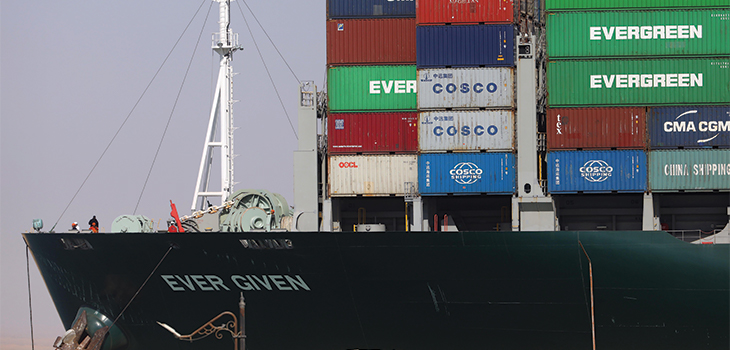
The recent major disruption to the use of the Suez Canal by a mega container ship, the Ever Given, has inevitably called to mind other blockages in the 152-year history of the canal.
No fewer than 369 ships had been queueing in the canal because of the recent disruption; the legal consequences may be different in each of them. It would be difficult to consider one class action.
The canal had originally been owned and operated by the Suez Canal Company, the major shareholders being the British and French governments. In 1956, in the vanguard of Arab nationalism, the new Egyptian leader, Gamal Abdel Nasser, had nationalised the canal. This had immediate and long-term consequences, for the Egyptians now faced operating the canal themselves, without necessarily having the resources to do so. Now, Egyptian crew take the ship through the canal, and, at the time the Ever Given went onto a sandbank,









